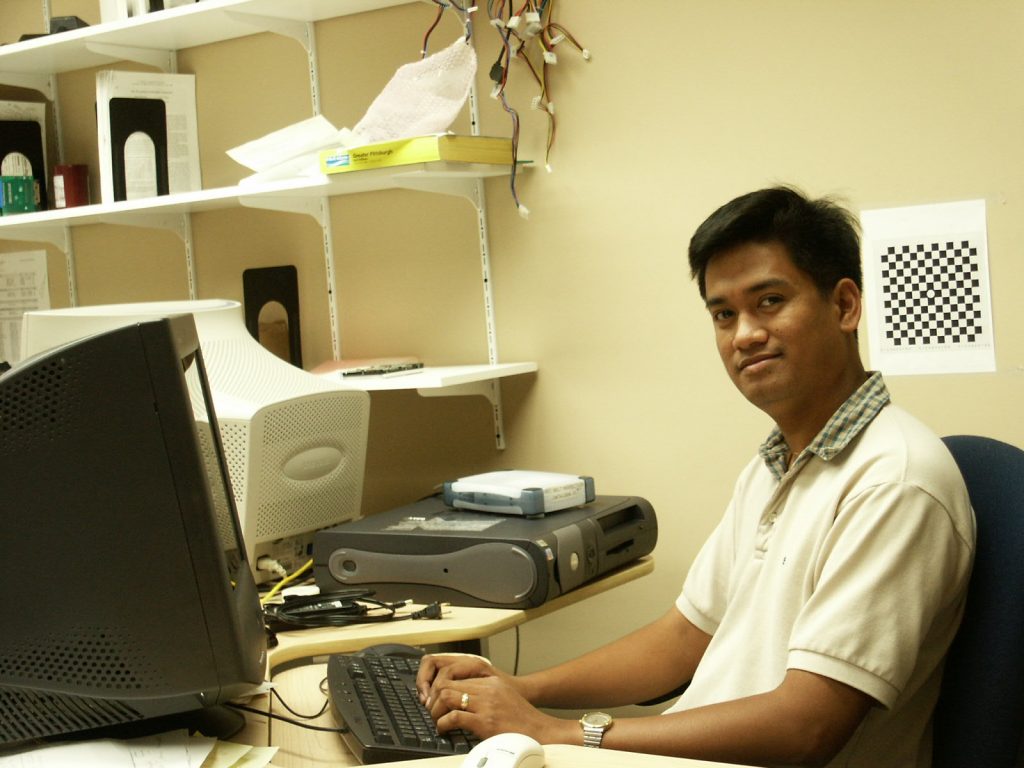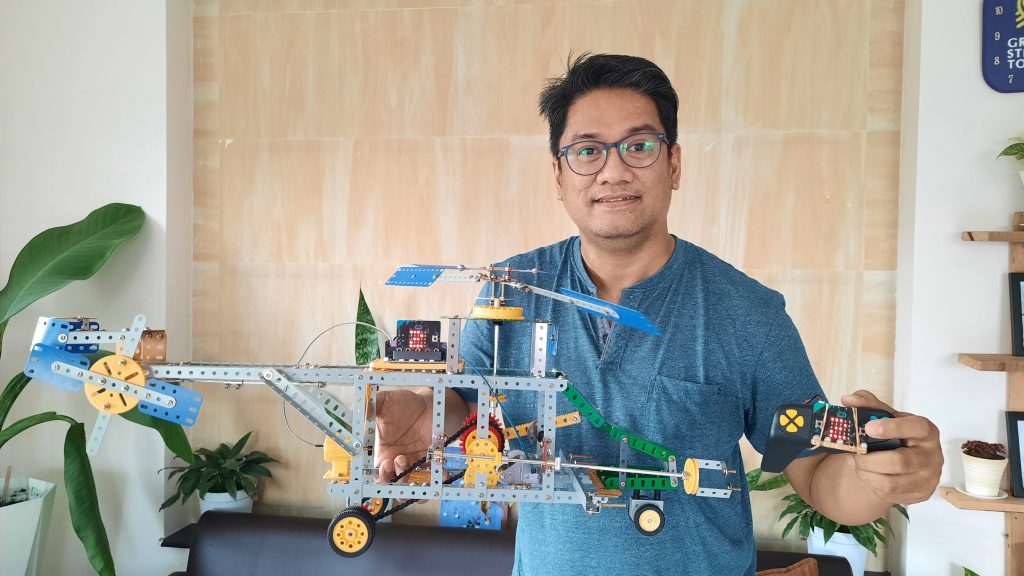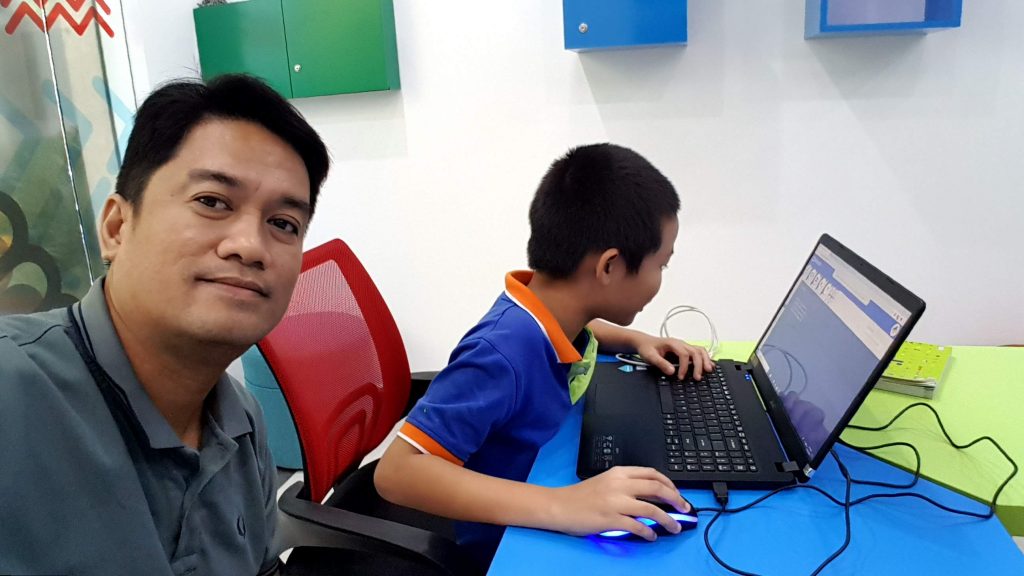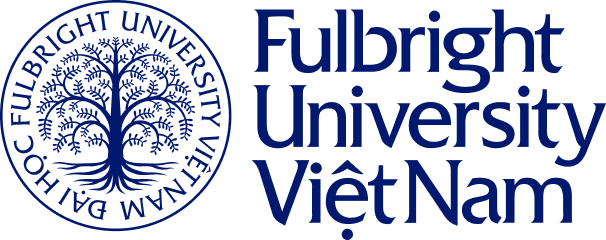
Lead Faculty for Technology and Innovation of the YSEALI Academy at Fulbright University Vietnam on the upcoming seminar for young leaders from Southeast Asia, the exponential progress of technology, and its implications for the future of the region.
Vietnam has been home to Dr. Vladimir Mariano, a computer scientist, educator and entrepreneur, for seven years. The country is part of a journey spanning 34 years of efforts dedicated to technology, which began when he first learned how to code in a summer camp as a 14-year-old boy growing up in the Philippines. After completing his Ph.D. in Computer Science and Engineering at the Pennsylvania State University, Dr. Mariano has held official posts at universities, startups and tech companies in the U.S., the Philippines and Vietnam. And now, with his recent appointment as Lead Faculty for Technology and Innovation of the YSEALI Academy at Fulbright University Vietnam, according Dr. Mariano, it is nothing short of a dream come true.
“I dreamed of coming to Fulbright when it was first announced by [the then] U.S. President Barack Obama in 2016,” he said over our Zoom conversation. “I was excited. This is not just a new university. It is part of the history of the relationship between the two nations. To be part of this unfolding history is like a dream come true. I’m also very happy because it reconnects me back to the United States, where I got my Ph.D., where my family and I embraced and were welcomed by America.”

1988 in Dr. Mariano’s home in the Philippines: “That’s me (left), my dad (center) and my brother (right). It was around this time that I discovered the wonder of computers and how to code them.”
But in fact, Dr. Mariano’s hope and vision for the future of education actually goes back to the year 1995, when the internet was first introduced in the Philippines. “[At that moment], we imagined it was going to revolutionize teaching and democratize knowledge,” he told us. “Unfortunately, higher education is not evolving and innovating at the pace of technological progress. It is still desperately trying to hold on to its old ways, emphasizing degrees, grades and courses.” And with the pandemic, he lamented, the inequality has been laid bare, and exacerbated, meaning students who don’t have computers, laptops, or internet access won’t be able to engage with schools.
“When I heard about Fulbright, and especially the YSEALI Academy, I thought maybe this is the place that will innovate, and affect change, in the way we learn,” he said. How can we overhaul the education system, in a way that prepares the next generations to face incredible challenges in uncertain times – is the question he kept coming back to in our conversation.
“As future leaders of Southeast Asia, young professionals need to be critical of technology’
Technology has made exponential progress since Dr. Mariano’s days in the Philippines. “[In 1988], watching how a computer can process so much information in so little time was like magic, and we were magicians who commanded this new machine,” he shared. “I decided there and then that it was going to be my career, being with this very interesting machine.” Yet he admitted, even with his decades-old experience, technology is developing so fast that one can’t possibly predict what’s going to happen next. “In 2030, my son will be at the age of 26. Still I can’t tell what jobs are going to be in demand, what skills will be needed in the workforce in the future,” he said. “A lot of that is dictated by technology. Considering how fast the world is changing, we have to understand how these powerful tools are influencing us.”
Built on his observations and concerns in the field of AI, in particular machine learning and computer vision – his research expertise since doctoral years and later on, his ventures with tech companies, Dr. Mariano has chosen the theme of the upcoming YSEALI seminar to be “The Digitization of Trust”.

Internship at the Carnegie Mellon Robotics Institute, Pittsburgh 2002. This was where Dr. Mariano saw university ideas and expertise get turned into products.
“What is trust?” in the digital age is one of the critical components he would like Southeast Asian fellows to discuss and explore in this seminal get-together between international scholars, industry experts, and future leaders of the region. “As young leaders, you’re going to lead yourself, and you’re going to lead other people,” he explained. “In order to lead, you have to make decisions. And those decisions have to be based on truth, and facts.”
You may recall the 2020 Netflix documentary, The Social Dilemma, which exposes viewers to how social media manipulate and distort our perception of reality through calculated design features, aggravate our most staunchly, deep-seated beliefs, to the point of spreading conspiracy theories and disinformation. “A lot of people believe that AI is neutral, that it’s not biased,” Dr. Mariano said. “But it’s actually behaving in a biased way. Biased to whom? What are the goals of AI? It is the same goal as the company behind them, who writes the algorithms to collect data and maximize profits.”
He continued: “We all know the internet has been beneficial to the democratization of information. But now AI has put that on steroids, in terms of its ability to propagate good information, as well as misinformation and disinformation.” Citing the fact that most people are now experiencing life through screens and smart devices, and the fact that online transactions make up a considerable portion of business worldwide, Dr. Mariano hopes the upcoming YSEALI seminar will shed light on AI as a substantial entity that is trying to “sway your opinion, or put your opinion in a certain place”.
“As a leader in Southeast Asia, what should you do? How do you swim in this ocean of information and misinformation overload, in order to make a good decision for you and your people? I think it’s one of the biggest concerns now with artificial intelligence.”

Dr. Mariano: “There is this kid inside of me that doesn’t want to grow up. I love making and teaching robotics for kids” – 2021 in Vietnam.
The future of education through technology
While Dr. Mariano has had years of experience in the industry as co-founder and CTO of tech companies in the Philippines and Vietnam, education remains his true calling. “The idea that you can make a tech product out of what you’ve learnt in school, something that can be of use to people and also, you can make an earning out of that, was quite foreign to the students I was teaching in the Philippines many years back,” he shared. “What I learned from my work in the industry, I shared with them. I told my students, ‘This particular formula, or this algorithm, is important not just because you’re going to take a test, but I actually applied it to a company to solve a problem.’ Because of that, they do not forget it, regardless of their score in the test.”
His ultimate goal is to inspire new generations with the beauty and creativity of technology. Alongside his work at the YSEALI Academy, Dr. Mariano is running MakerSpace Kids, an initiative where children can come together to learn how to design games and build robots. He believes these activities will help them master math, physics, coding and digital art from an early age – through the very things they love to play with and intuitively understand – and empower these children with the possibilities of ideas for the future.

Dr. Mariano: “I enjoy watching kids discover the joy of coding. This 8-year-old kid learned Python by himself.” – 2020.
Otherwise, Dr. Mariano is also collaborating with the research team of the Fulbright School of Public Policy and Management – lending his expertise in A.I. and digital image processing to a project that will analyze satellite images – to unveil changing landscapes and piece together stories on the ground about agriculture, forestry, and environment developments in Vietnam. “Technology has always been a two-edged sword; it has lots of benefits, but also risks,” he said. “It is a powerful tool for good. Now, when I say for good, one guide for it is the U.N. 2030 Agenda for Sustainable Development.
“Southeast Asia is particularly vulnerable to climate change, overpopulation in urban areas, and many, many other issues on our path towards economic development. At YSEALI Academy, we hope to empower fellows. Instead of being distracted by the latest cool apps on our phone, we should think about how technology can actually help solve the biggest problems in the region right now. That we should think regional, and together as a people.” he said. “To do that, we need to take control of technology. We have to be aware of its influences and adapt fast to changing tides, and know that regardless of your background, you don’t have to be just a consumer of technology, but you can make technology.”
Bao Quyen








